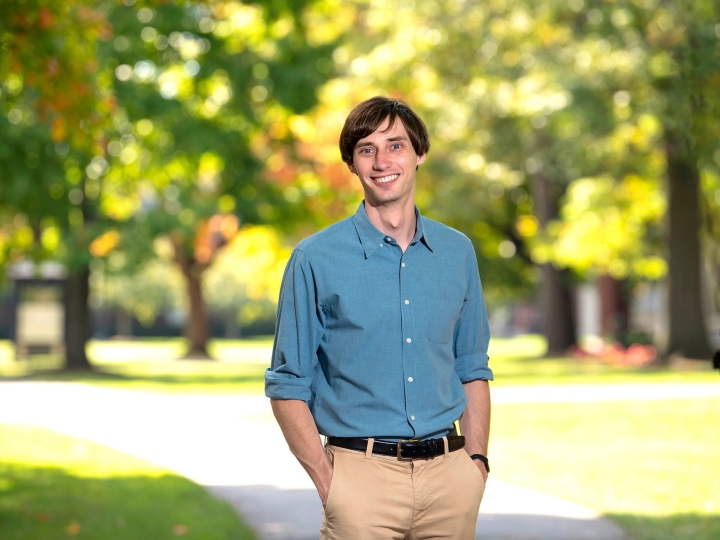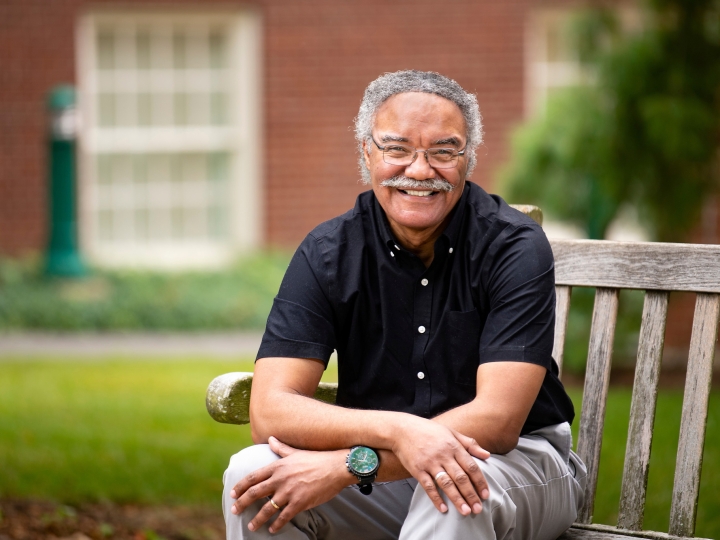
Erica Delsandro, Women’s & Gender Studies
October 1, 2018
Professor Erica Delsandro, women’s & gender studies, received the Presidential Award for Teaching Excellence in 2024. Photo by Gordon R. Wenzel
There’s not a semester that goes by without students saying, ‘I see the world differently now.’
Professor Erica Delsandro, women's & gender studies, routinely shakes up her students' understanding of social constructs such as race, gender and sexuality — often by helping them view the world through the lens of literature produced in the late-19th and early-20th centuries.
"One of the aims of teaching modernist literature and women's & gender studies is to defamiliarize, or denaturalize, students to 'realities' they take for granted," explains Delsandro, who teaches courses on women's & gender studies and classes rooted in her research interest, modernist novels focusing on characters who are marginalized by race, class or sexuality.
"When we discuss sexuality, students are surprised to learn that the words heterosexual and homosexual didn't exist until the mid-19th century," Delsandro says. "The emerging science of sexology and changes in legal policy helped create those categories. But students often say, 'I thought it was always like this.' "
Talking about issues related to sensitive topics can be challenging, Delsandro admits. However, by helping students realize the relationship between the impact and intent of their words, and by reminding them that everyone brings strengths to the classroom, she is able to facilitate engaged discussions. In fact, she says, her classroom is often filled with laughter.
Delsandro adds that viewing their own cultures and norms from different perspectives often leads students to consider what positive changes might be possible, in terms of improved race relations or advancements for women and trans individuals. However, she says students are also compelled to grapple with difficult questions about issues that remain the same over time.
"Women are still being assaulted by men," she notes. "But now women have more platforms to speak out from, and there are more voices participating in the conversation. I tell my students, 'It's your turn now. Go out into the world and bring new perspectives and new changes.' "
Initially, students in Delsandro's literature-based courses also frequently question the value of reading texts that are experimental in form, and which focus upon characters who exist on the social periphery.
However, students soon realize that novels such as Jean Rhys' Voyage in the Dark, a 1934 work about an uprooted young woman's turbulent relationships in a land that's foreign to her, connect with the present.
"What was happening then is echoed now," Delsandro says. "What students are experiencing today has a history, and it has evolved."

